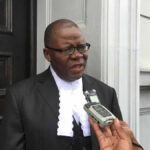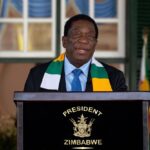Harare – Zimbabwe’s Home Affairs Minister, Kazembe Kazembe, has issued a renewed call for the repatriation of the skulls of Zimbabwean heroes taken to Britain during the colonial era, demanding closure on a decades-long debate.
The minister’s statement, delivered at the National Museums and Monuments of Zimbabwe Strategic Planning Workshop in Harare on Thursday, underscores the nation’s persistent desire to bring home the remains of its revered ancestors.
For over three decades, Zimbabwe has sought the return of these remains, believing that the skull of Mbuya Nehanda, a pivotal figure in the First Chimurenga (rebellion) against British rule, remains in a British museum. Legend recounts that after her capture in 1897, execution, and beheading, Mbuya Nehanda’s remains were taken to England as trophies of conquest, a grim symbol of colonial oppression. Authorities in Zimbabwe have long suspected that the remains of other leaders of the 1890s uprising also met a similar fate.
Minister Kazembe’s statement directly addressed the issue: “I also want to add that the issue of the human remains of the heroes of the First Chimurenga being kept in the Natural History Museum in Britain should be brought to its logical conclusion to give closure to the families and the nation at large.” His words highlight the emotional weight of this matter for Zimbabweans, emphasizing the need for resolution and the healing that repatriation could bring.
The minister’s call for closure comes after a recent pledge from the British ambassador to Zimbabwe, Peter Vowles, who in October promised to facilitate the repatriation of the remains. This pledge offers a glimmer of hope for a positive resolution to a long-standing point of contention between the two nations. However, the minister’s forceful statement underscores the urgency Zimbabwe places on this issue, leaving no room for further delays.
Beyond the repatriation issue, Minister Kazembe launched a significant initiative aimed at preserving and promoting Zimbabwe’s liberation history. This initiative reflects a broader commitment to safeguarding the nation’s heritage and ensuring its accurate representation for future generations.
The minister outlined the scope of this initiative: “We will work closely with these nations to identify, document and preserve liberation heritage sites, ensuring our shared history is protected and celebrated.” This proactive approach signals a commitment to a more comprehensive approach to heritage preservation, extending beyond the immediate focus on repatriation.
In addition to this new initiative, Minister Kazembe also took action to strengthen the governance of the National Museums and Monuments of Zimbabwe. He reconstituted the board of trustees, an organisation tasked with overseeing the preservation and promotion of the nation’s heritage. Commenting on this significant change, the Minister stated: “The ship was sailing without a captain for too long,” highlighting the need for improved leadership and management within the organisation.
The minister also emphasized the importance of compliance in governance and policy formulation, urging the newly reconstituted board to address any gaps in the entity’s compliance matters. He further stressed the importance of maintaining shrines both within and outside Zimbabwe’s borders, stating: “My ministry also expects urgent attention on the maintenance of our shrines both within and outside our borders, in tandem with our clients’ expectations.”
The minister’s actions demonstrate a concerted effort to address long-standing issues related to Zimbabwe’s colonial past and to strengthen the institutions responsible for preserving its national heritage. The demand for the return of Mbuya Nehanda’s skull is not merely a symbolic gesture; it is a crucial step towards national healing and reconciliation.












